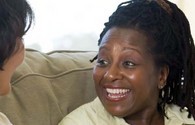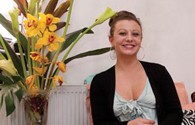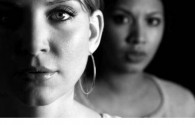
Theme
Children and families: improving support
This theme explores the issues concerning children and families and how they affect women who are homeless. It is being led by Expert Group member Dame Clare Tickell, Chief Executive of Action for Children. Read the theme round-up here.
Please post your submissions, see what others have submitted, and join in the discussion.
Dame Clare says:
Estimates suggest that up to 1 million children in the UK are at risk of being trapped in the same cycles of deprivation and neglect as their parents.
Across sectors, we also need to develop more effective professional relationships with vulnerable parents in order to improve outcomes. We need to better recognise the skills and abilities they do have and nurture both the parent and the child’s sense of being capable, resilient and able to achieve their potential.
Of course, early intervention services require adequate funding. Despite increasing demand on already stretched services, we’ve seen preventative services being cut or de-prioritised. Local authorities should be supported to provide early help, as well as later interventions for vulnerable children and families. In particular, there should be no further reduction in housing related support. We need more supported housing for homeless women.
We need a national debate on the needs of vulnerable women and their children and the Rebuilding Shattered Lives campaign provides that opportunity. I’m looking forward to the conversation and hearing more on innovative practice, particularly from those who work with both homeless women and their children.
Read more from Dame Clare about these issues in her blog.
Join us by showcasing your best practice and innovations, view, ideas and client voices.
We particularly want to hear about:
- Support around relationship issues for homeless women, including loss and bereavement
- Family support services that work with homeless women
- Pregnancy support for women experiencing homlessness, access to antenatal services and multi-systemic therapy
- Early intervention services that prevent neglect, family separation and homelessness
- Working with Children’s Social Services and access to and contact with children
- Housing options for women with children, including children with disabilities and families requiring support to rebuild relationships
- After adoption / fostering support or counselling
If you have already joined the campaign, please log in to submit evidence. If you are not already a member, please click here to register. Please submit your contributions by 31 December.
Theme started on: 02 Nov 2012
25 Submissions
The topic ‘Children and families: improving support’ is closed to new replies.
Internet highlights
- UK Online Casinos
- Non Gamstop Casinos UK
- Nouveaux Casinos En Ligne
- Casinos Not On Gamstop
- Casinos Not On Gamstop
- Casino Sites Not On Gamstop
- Casino Sites Not On Gamstop
- Casino En Ligne
- Non Gamstop Casino Sites UK
- Fastest Payout Online Casino
- UK Online Casinos Not On Gamstop
- Non Gamstop Casino
- Casino Online Non Aams
- Casino Online Sin Licencia España
- Casinos Sin KYC
- Reputable Non Gamstop Casinos
- Casino Sites UK
- Non Gamstop Casino UK
- Sites Not On Gamstop
- UK Casinos Not On Gamstop
- Sites Not On Gamstop
- Sites Not On Gamstop
- Lista Casino Non Aams
- Casinos Not On Gamstop
- Casinos Not On Gamstop
- Casino Non Aams
- Meilleur Site Casino En Ligne Belgique
- Meilleur Casino En Ligne Belgique
- Migliori Casino Online
- Casino Visa
- Sites De Paris Sportifs
- คาสิโนคริปโตไทย
- 카지노 사이트 추천
- Bookmaker Non Aams
- Meilleur Casino En Ligne
- Casino Bitcoin
- Casino En Ligne
- Meilleur Casino En Ligne
- Casino Crypto



